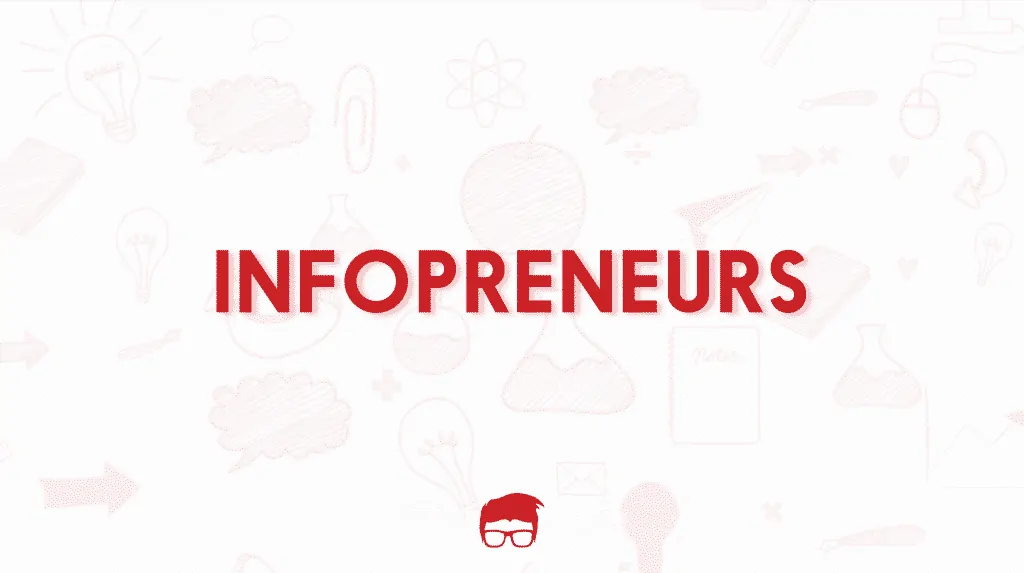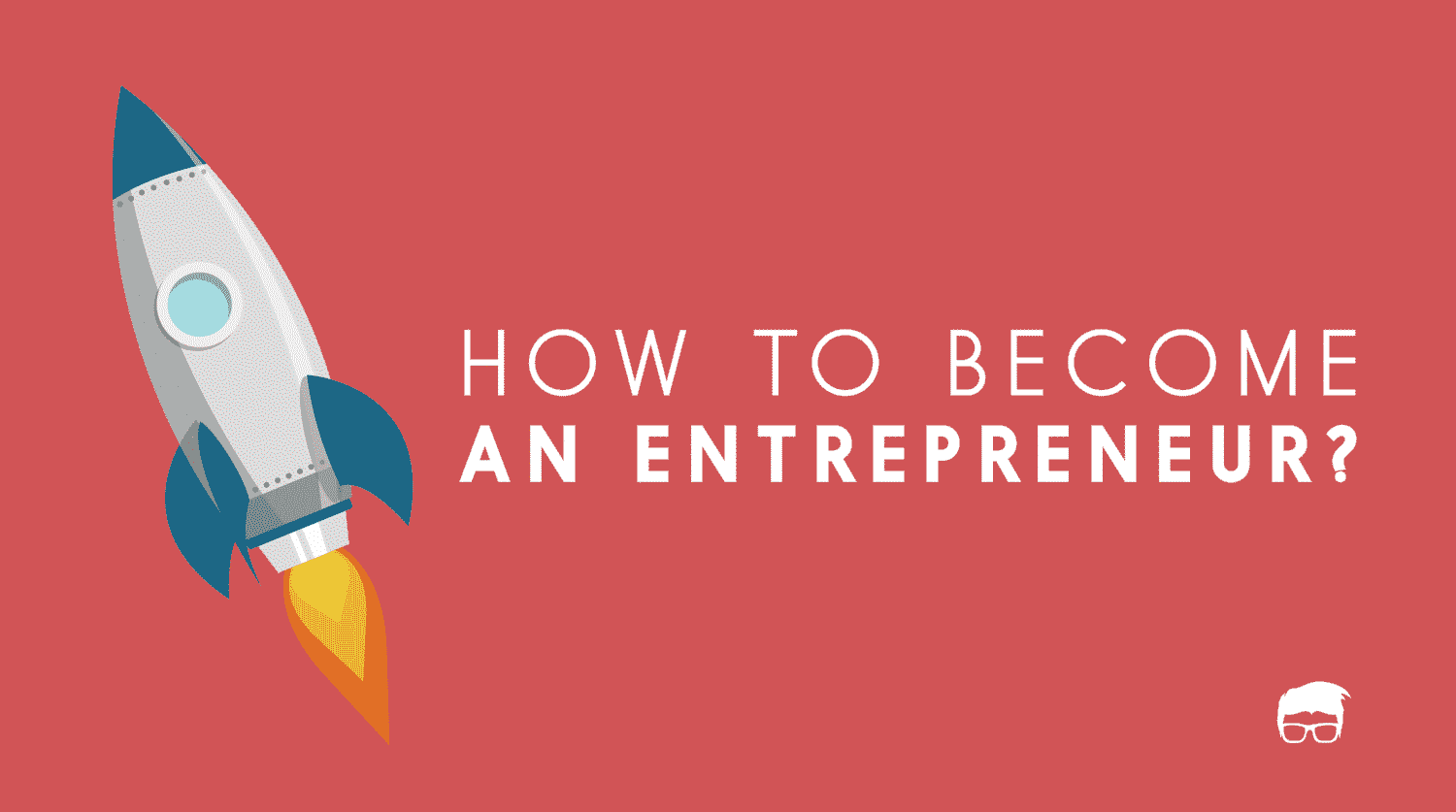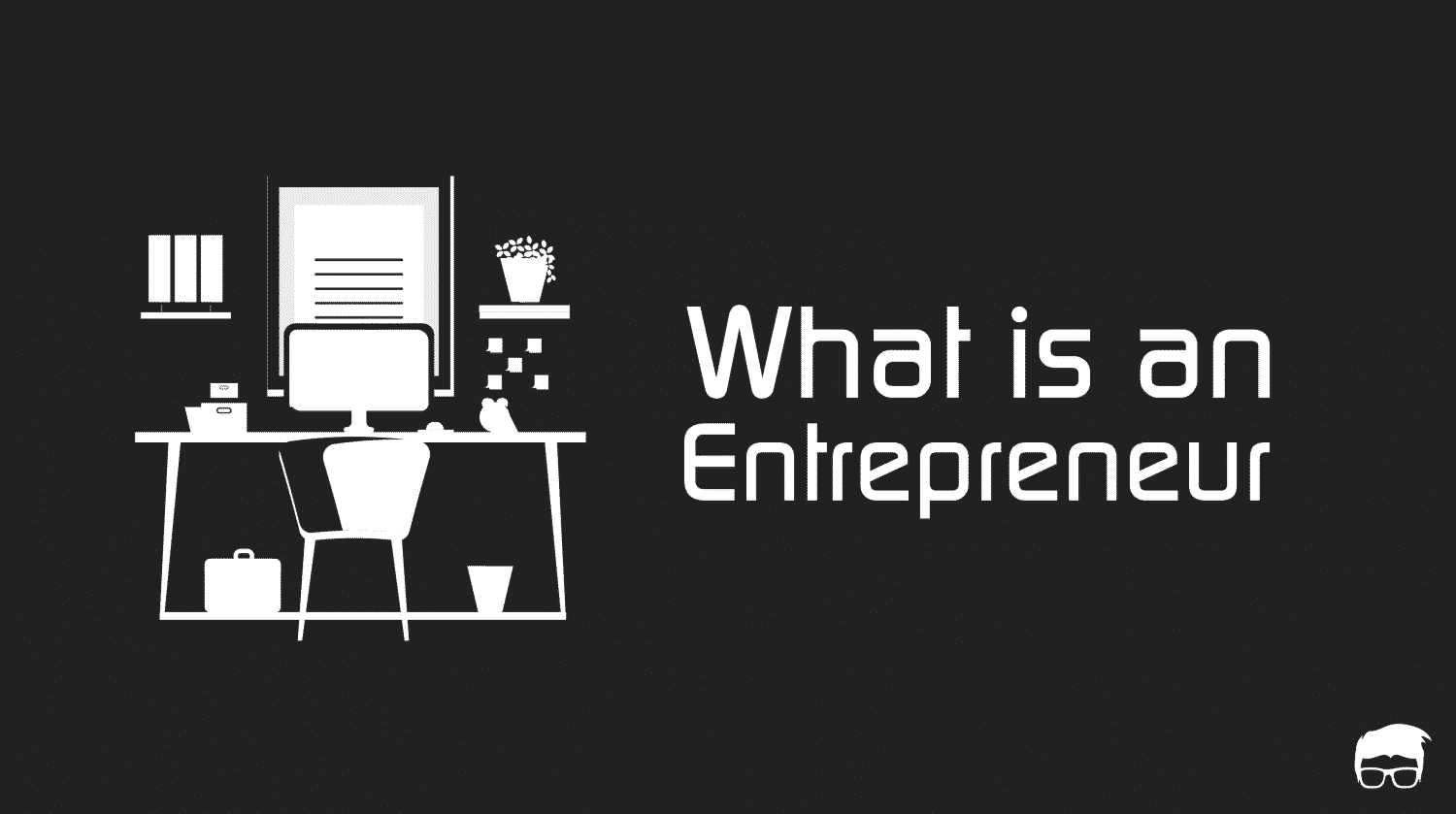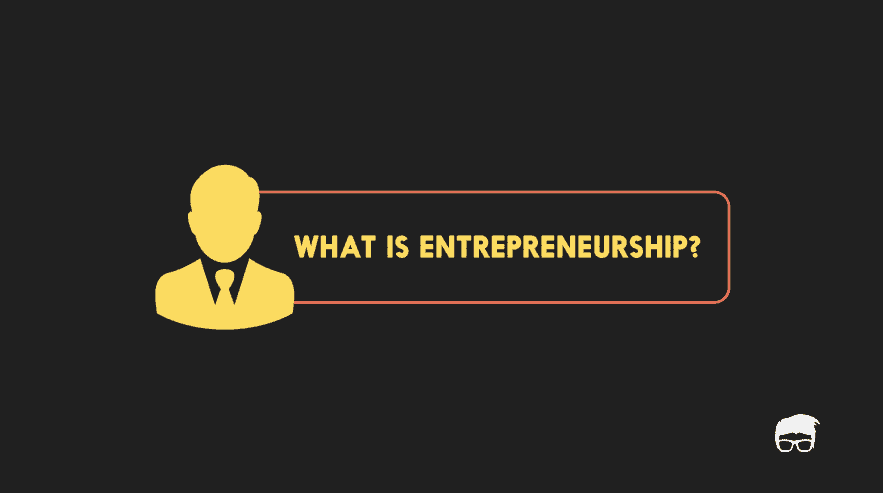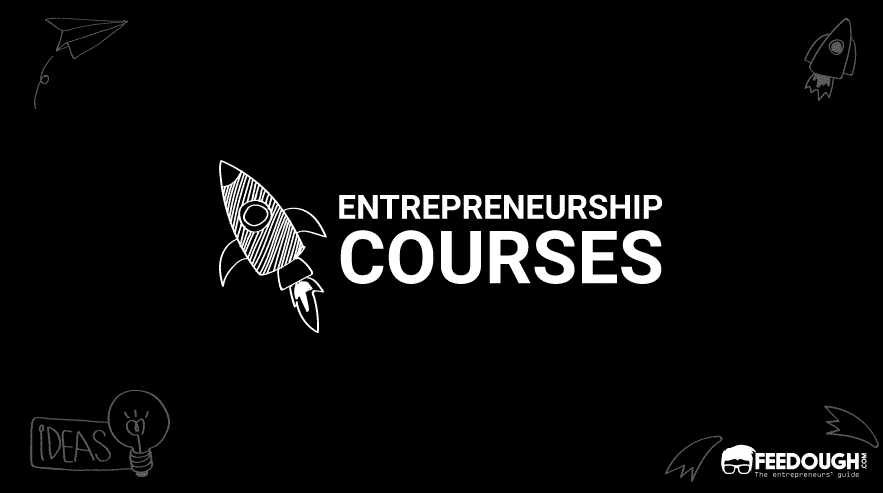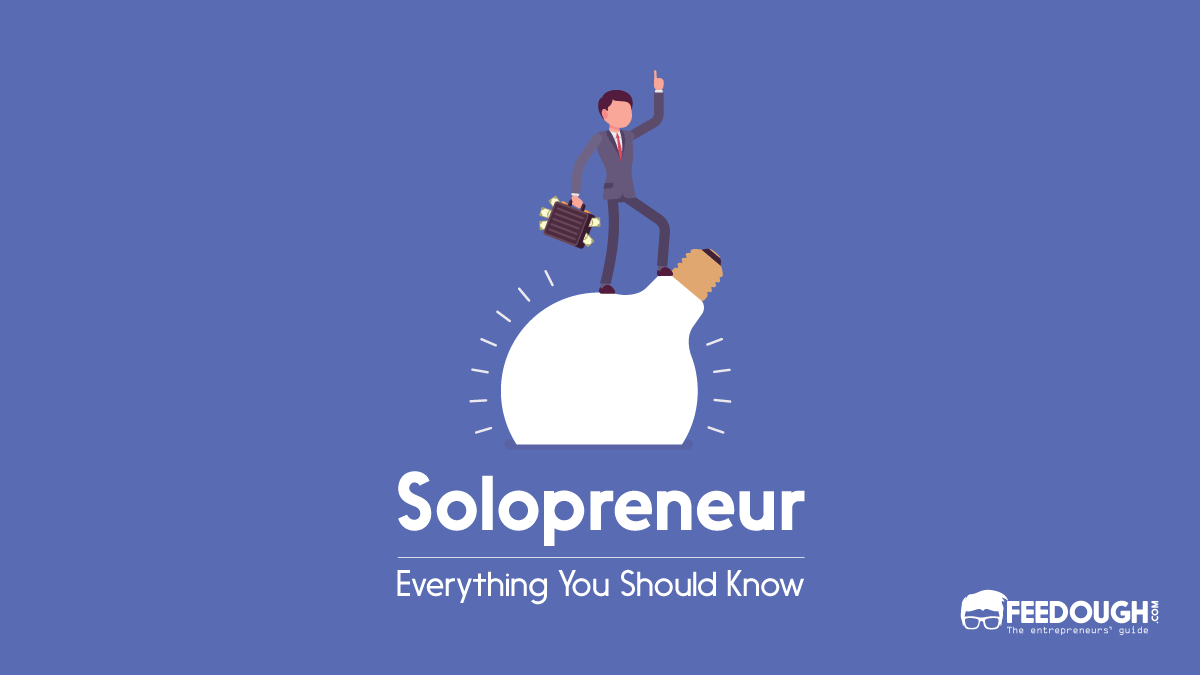We are surrounded by entrepreneurs. Some sell great products, some provide unique services, some come up with an incredible idea, and some build upon an existing idea. Every kind of entrepreneurship has its own risks and conditions.
But there is a new type of entrepreneurship finding its way in the startup world. Unlike other entrepreneurship styles, this entrepreneurship requires less monetary investment and risks and more time, perseverance, and energy. These entrepreneurs are commonly known as infopreneurs who capitalize on the data consumption needs, wants and desires of the target market.
Who Is An Infopreneur?
An infopreneur is an entrepreneur who makes money by collecting, organizing and selling information mainly in a niche market (online and offline). The term infopreneur is a portmanteau of the words information and entrepreneur.
In simple terms – an infopreneur is an entrepreneur who makes money through information by recognizing knowledge inadequacy state.
By investigating the history of infopreneurship, it was found that the term infopreneur was registered as a trademark by Harold F. Weitzen on February 1, 1984, who published a book, “Infopreneurs: Turning Data Into Dollars” on 1988 which became the first book on infopreneurship. Videos, audiotapes, CDs, talk shows etc. were the offline approaches used by infopreneurs in the ’80s and ’90s. However, Infopreneurship became a rising trend with the advent of the internet as anyone with a computer and an internet connection could start a business by issuing valid knowledge and information regarding a particular niche.
Infopreneurs changed the face of entrepreneurship as they proved that it is possible to set up a business without having to hire staffs or equipment or invest tremendous amounts of capital and even have involvement of very low financial risks.
Types Of Infopreneurs
In general, there are 7 types of infopreneurs. These are –
- Course Creators: These infopreneurs create full-fledged courses and sell it either on their own websites or through online marketplaces like Udemy.
- Authors: These types of infopreneurs put down their expertise, experience, and insight in a book or an e-book and make money by selling those.
- Niche Bloggers: Usually, bloggers don’t sell anything. They share their thoughts, expertise, experience, and insight on a publically available platform and make money either through advertisements or by partnering with brands they advocate.
- Niche Podcasters: Niche podcasters are similar to bloggers, the only difference being the platform. Podcasters share their information in the form of audio.
- Niche Vloggers: Vloggers are bloggers who share their information in the form of videos.
- Speakers: A speaker is an expert in his own field who influences others through his speech. His business model includes charging money to speak in an event.
- Coaches: Coaches are people who help others to unlock their personal potentials. They provide their services both online and offline.
- Consultants: A consultant is an expert who gives sells his professional advice to businesses and individuals.
- Thought Leaders: A thought leader is a niche expert who people look up to when it comes to making decisions related to that niche. They operate through many channels which even include social media.
How To Become An Infopreneur?
Becoming an infopreneur is one way of turning passion into profit. One of the best advantages of being an infopreneur is that there is no need to be at a specific place to work. It, however, requires the entrepreneur to have more than average knowledge on the niche he wishes to start a business in.
Here are the steps involved in becoming an entrepreneur –
ChooseThe Niche
It is best to first decide what you’re good at and will the target market benefit with your knowledge about it. Choosing a niche is probably the most important aspect of being an infopreneur.
If you want to start something in the online world, it becomes easier to research and validate your idea hypothesis as you can make use of tools like Google Trends, Google Adwords, Market Samurai, Buzz Sumo, etc.
In the offline world, however, there can be difficulties to determine if there’s a need for what you have to offer. But you can always provide your services for free initially to validate your need hypothesis and build your audience.
Choose The Channel
Once this hypothesis is validated, decide on what format the product has to be released. Books, e-books, videos, podcasts, tutorials, webinars etc are some ways that infopreneurs can use to sell their products and ideas online.
Build A Personal Brand
While the offering occupies the first position in the priority list, building a personal brand doesn’t fall much behind. It is absolutely necessary to let the customers know about the infopreneur.
Build associations, create more than communication channels, and develop an identity by assigning brand colours, creating channel logos, etc.
A website, being the cornerstone of the business, will cement the infopreneurship firmly on the market by making the product go live and giving the product a brand name and value. Having a textual, audio, or video blog along with the website will help to reach more customers as a blog gives more specific and personalized information about the business and is indeed an integral part to decide whether the business will succeed or fail.
Develop A Revenue Model
Until this step, there is no possible way of making a profit from the website and thus it is important to monetize the website so that revenue can be generated from it. The most popular revenue models are consultation charges, affiliate marketing, Google Adsense, and referral fees.
Many infopreneurs eventually become influencers in their own niche and often charge for providing consultation services.
Affiliate marketing is promoting a third-party product on the website which will earn a commission for every sale made through the link on the website.
Google Adsense uses its advanced technology to decide the content of the webpage and then delivers ads that are contextually relevant to the audience. The infopreneur will be paid for every single click on the ads. Getting income from referring people from the website is another way to earn money from the website.
Infopreneurs’ Success Stories
There are a lot of entrepreneurs who have been successful and their success stories have been an inspiration to thousands. Among them are a handful of infopreneurs who managed to stand out from the crowd with their unique and innovative ideas.
Tara Reed, Founder and CEO of Apps Without Code
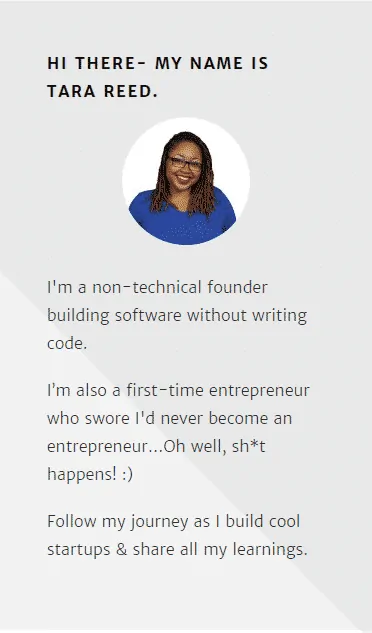
“When people ask me for advice, I tell them: Get going. Chances are, you’ll have something wrong, but you won’t know until you test those assumptions with actions”
Tara Reed is one of the most successful infopreneurs. She is the founder and CEO of Apps Without Code, a startup school that tutors non-technical founders how to launch their apps without coding. Her story is not a rag to riches story but it is worth mentioning as she is one of the most successful infopreneurs ever.
She found that while people browse Amazon for E-books or Netflix for movies, there is no place where art lovers can get recommendations. This led to her launching Kollecto, a personalized art recommendation app, which she created without using code. When the Youtube videos about her experiences gained over a hundred thousand views, she became the founder and CEO of Apps Without Code. Apps Without Code is a startup school that provides coaching, webinars and is, in fact, a rigorous boot camp. It helps entrepreneurs, as well as future infopreneurs, turn their ideas into feasible businesses.
Stephanie Chandler, Author and Founder-CEO of Stephanie Chandler Enterprises, LLC

Stephanie Chandler is known as the woman who used her knowledge of creating small businesses into a large content empire. After opening a bookstore in 2003, she discovered her passion for teaching other entrepreneurs on how to run successful businesses. This prompted her to launch BusinessInfoGuide.com, an educational blog and directory of resources for entrepreneurs. She then began to create and sell books like ‘Own Your Niche’ and ‘The Nonfiction Book Marketing Plan’. It was through the profits she generated by selling the books, that she founded Stephanie Chandler Enterprises, LLC which was the parent company to her business ventures including the publishing house, Authority Publishing as well as various other ventures like the ‘Nonfiction Writers Conference, an annual online event, the ‘NonfictionAuthors Association’, a marketing community for authors and BusinessInfoGuide.com.
Her book ‘Own Your Niche’ was recognized with the ‘Best Business Book Award’ at the Global Ebook Awards in 2012. She was named in the Top 100 Small Business Influencers by Small Business Trends in 2012.
Go On, Tell Us What You Think!
Did we miss something? Come on! Tell us what you think of this article on infopreneurs in the comments section.
A startup enthusiast who believes anything can be built if you do that required research and get the base ready.
